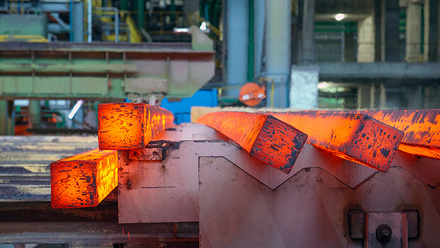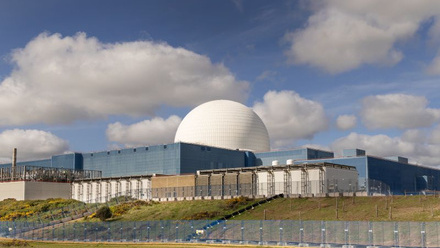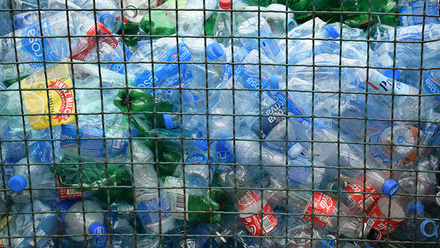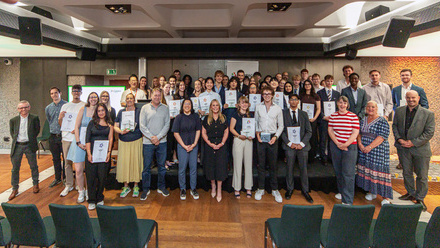Get talking - The future for energy materials
What are the implications for materials engineering in the energy transition? Professor Roy Faulkner FIMMM of Loughborough Materials Ltd, UK, pens his thoughts.

As James Lovelock once said, ‘We live in a time when emotions and feelings count more than truth, and there is a vast ignorance of science’. This is a clear description of the energy debate, and, to be very topical, the COVID-19 debate. Because politicians do not understand the science behind global warming, they often hide behind dogma to come up with a solution, and then blame it on scientists if it turns out to be wrong. Again, similarities with COVID-19 are clear.
What is certain in this debate is the need to consider the sustainability of the resources that we use for producing energy. In this situation, I am firmly behind the arguments used for reducing fossil fuel usage for energy purposes. From a resources viewpoint, this is not straightforward. There is plenty of coal and oil left in the world, but burning fossil fuels has increased CO2 levels unacceptably over the past 30 years, and that will clearly increase the planet surface temperature. This is obviously an unsustainable position.
Moving to a carbon-free energy economy has huge implications for materials engineering. For many materials engineers, this represents a life-changing situation. Many have devoted their careers to developing high-temperature materials that will give energy efficiency benefits to steam and gas turbines. All this could now be regarded as a waste of time. But materials engineers are, at the very least, resilient. What is now needed is for the profession to support initiatives to integrate materials specialists into the new industries that are emerging in the brave new carbon-free world that is on its doorstep.
The UK is currently in the lead. The 2020 Environment Bill sets out the plan for a carbon-free economy by 2050. There are other issues such as waste management and plastic recycling covered in the Bill, but I am concerned only with energy here. Eventually, all other countries will have to follow us, or face world-wide Armageddon. Cost will have to become a secondary issue. But it is important that proper scientists and engineers are employed in this monumental effort, because they understand the technologies that are needed.
The new CO2-free energy production routes are based on renewable and nuclear resources to produce electrical energy. Hydrogen will need to be produced in huge quantities to act as a buffer to allow for the intermittency of many renewable sources. Electric cars, aircraft, and electric domestic heating will be the only easy options for a CO2-free energy economy by 2050. Provision must be made for carbon capture and storage technology, which legitimately could permit some coal and oil burning. Similarly, there will be developments in small-scale nuclear plants to assist in transport, particularly rail and aircraft. This will all come at an enormous cost to the consumer. If we want sustainability, we are going to have to pay for it.
As for materials engineers in this new type of society, our priorities must be to provide materials expertise to:
- The microelectronics sector – particularly in the photovoltaic and LED arena, where grain size and microstructure have been shown to be very important in active regions of electronic devices
- The nuclear electricity generation sector – particularly where high-temperature materials and radiation damage expertise is still desperately needed
- The nuclear transport industry – with new small-scale reactor concepts based on light water reactor and molten salt designs
- The wind turbine industry – especially supporting work on fatigue in aluminium and composites, and on corrosion of stanchions for deep offshore wind farms
- The hydrogen transport and storage industry – especially in low-temperature steels developments, building on liquefied natural gas technology, and in a) hydrogen embrittlement, and b) hydrogen permeation, diffusion and adsorption
- Carbon capture and storage technology – for existing coal and oil-fired electricity generation plants
There are signs that IOM3 is adapting well to these new circumstances. The new CEO, Colin Church, has clearly laid out the IOM3 response to the 2020 Environment Bill in the March issue of Materials World.
There are good opportunities for IOM3 to be at the heart of the debate about materials engineering priorities for the carbon-free economy. We have signed up to the Society for the Environment pledge to net zero. The new Strategic Advisor positions in IOM3 should be heavily involved in this work, and one of their first roles should be to set up training courses and meetings to discuss the way forward to ensure that future materials engineers have the appropriate skills, some of which are mentioned above, for the new carbon-free future.







